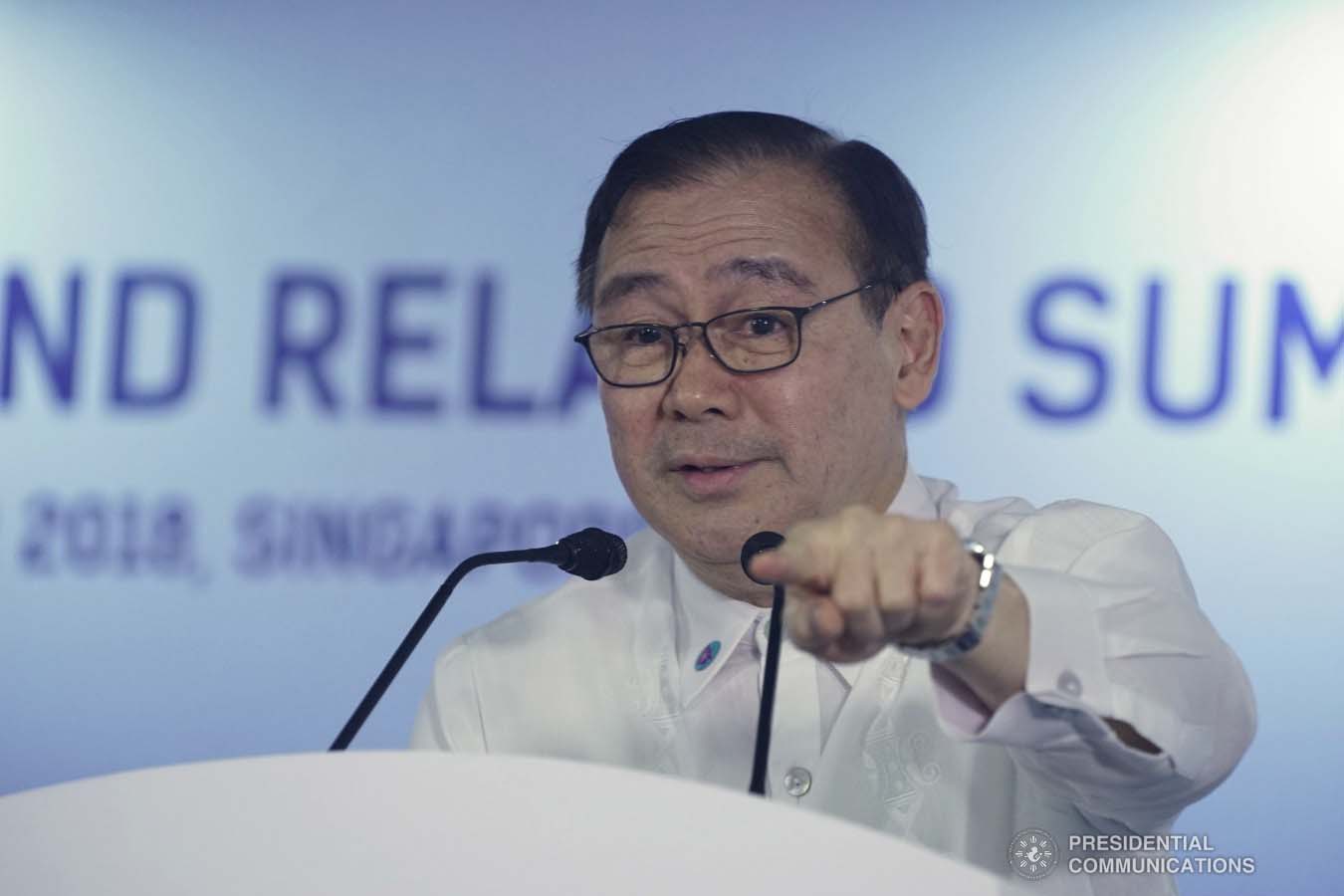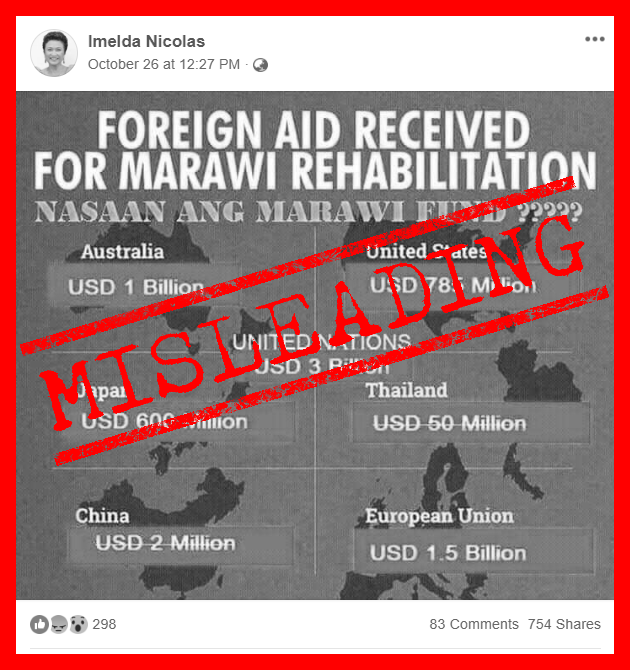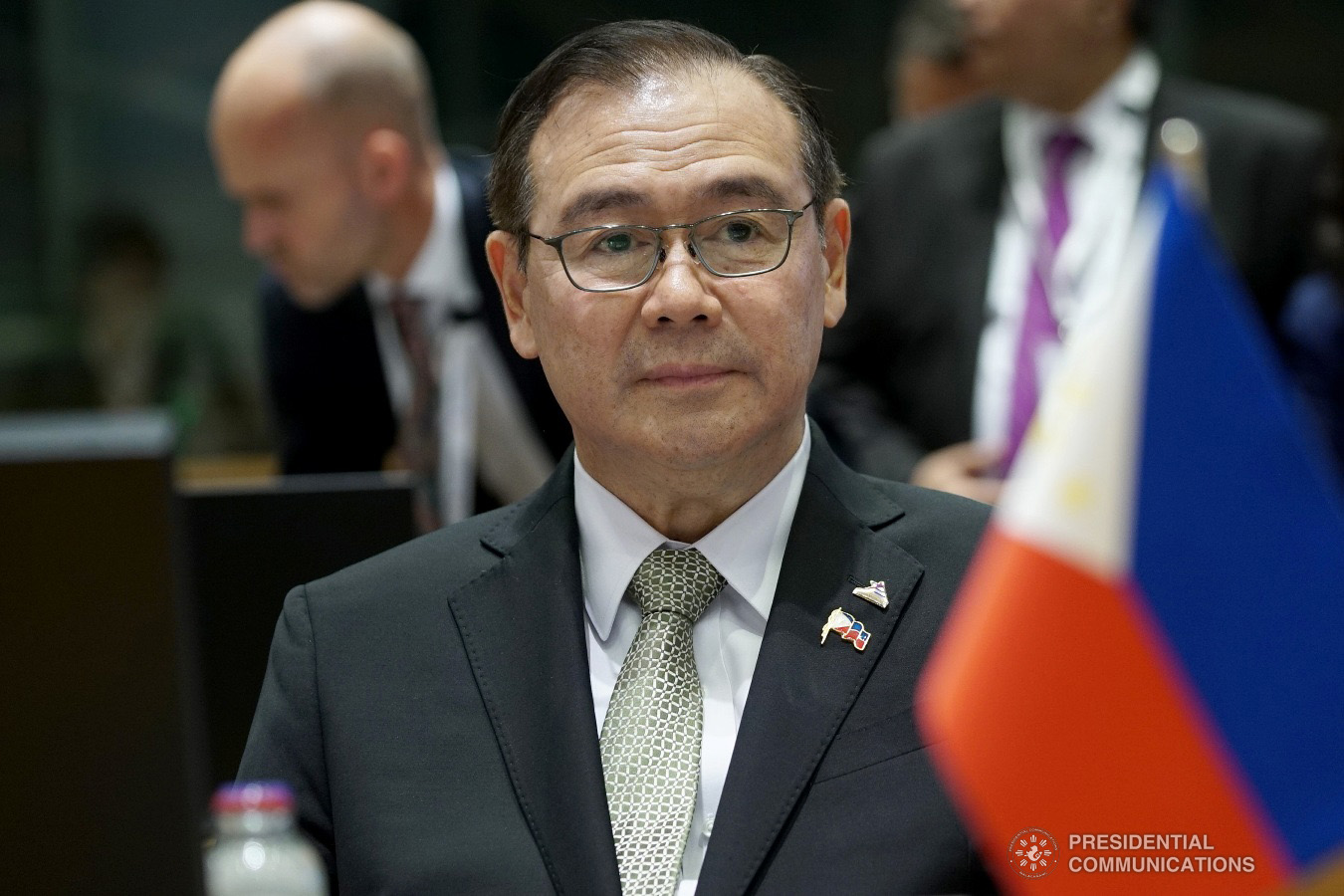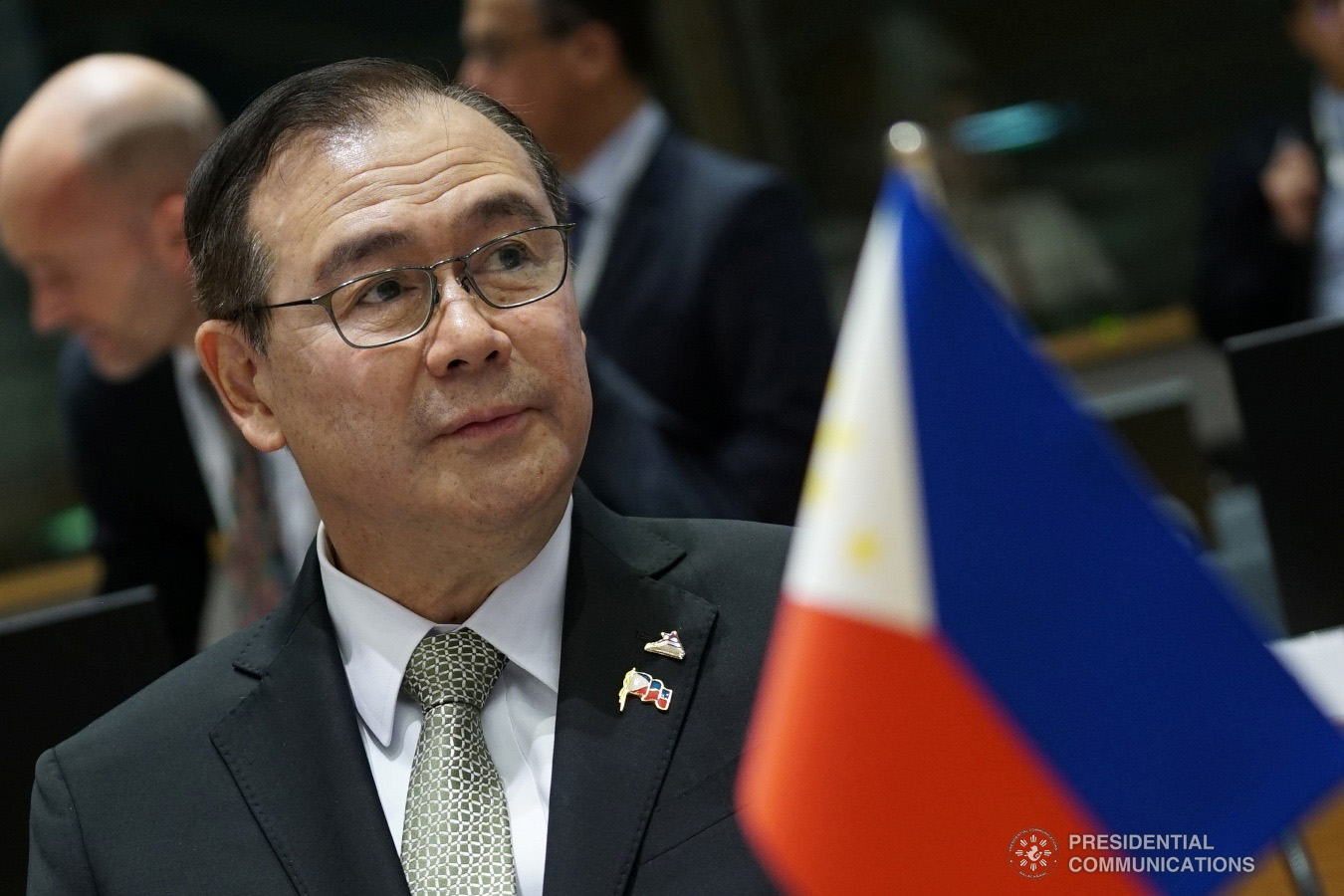Foreign Affairs Secretary Teodoro Locsin Jr. marked the recent anniversary of the Marawi siege by defending the government’s war on drugs.
STATEMENT
On the third commemoration of the Marawi siege on May 23, Locsin retweeted a screenshot of the Palace’s statement on Twitter with the caption:
“THE SIEGE OF MARAWI was triggered by the service of a warrant of arrest on an Islamic drug lord. Just so everybody knows why we are AT WAR WITH THE DRUG TRADE—it is a national security threat even if NGOs on the drug trade payroll insist it violates a human right to deal drugs.”
Source: Teodoro Locsin Jr. official Twitter account, THE SIEGE OF MARAWI…, May 23, 2020
On Sept. 28, 2019, during the 74th United Nations General Assembly, the secretary falsely claimed the siege was “triggered by an attempt to serve a warrant of arrest for drug trafficking on the leader of an Islamic jihad.” (See VERA FILES FACT CHECK: Duterte, Locsin repeat claim Marawi siege caused by anti-drug ops)
Locsin’s September 2019 pronouncement is a reiteration of President Rodrigo Duterte’s claim in November 2018 that the cause of the war in Marawi was “not an overt act of rebellion” but rather a drug raid gone awry. Duterte repeated the claim in October last year. (See VERA FILES FACT CHECK: Duterte revises Marawi story, contradicts martial law justification)
FACT
Duterte’s proclamation and report to Congress justifying the initial declaration of martial law in Mindanao did not mention any drug charges involving Abu Sayyaf sub-leader Isnilon Hapilon, who state forces attempted to arrest on May 23, 2017 for kidnapping for ransom.
While Duterte’s report to Congress did say the Maute group, which then worked with Hapilon, was receiving funding from illegal drug money, as well as from the extremist group ISIS (Islamic State of Iraq and Syria), it did not specifically cite Hapilon of being involved in the illegal drug trade.
On May 24, 2017, a day after declaring martial law, the president claimed brothers Omar and Abdullah Maute, the leaders of the Maute group, were former police officers who got “enamored” with illegal drug money and established “the biggest factories of shabu (methamphetamine hydrochloride)” in Lanao del Sur.
A few days later, then police chief Ronald “Bato” Dela Rosa denied that the Maute brothers were former cops, and said they were protectors of drug lords and narco-politicians who, in turn, supposedly fund their operations.
The failed attempt to apprehend Hapilon and the Maute brothers in Marawi City led to a firefight, which “escalated into open hostility against the government.”
About two weeks in, on June 6, 2017, Duterte offered a P10-million bounty for the “neutralization” of Hapilon who, according to the military, had an outstanding arrest warrant for kidnapping with ransom and serious illegal detention — not drug trafficking, as Locsin previously claimed.
Hapilon, listed as a terrorist by the United States and the United Nations, was being pursued by the military after it received information that he was planning to establish a “wilayah” or province of ISIS in Central Mindanao. Defense Secretary Delfin Lorenzana said Hapilon was the designated “emir” or leader in Southeast Asia.
At the time, Hapilon and other ISIS-affiliated groups were preparing to launch a siege in Marawi. In defending the president’s martial law declaration before the Supreme Court, the Office of the Solicitor General (OSG) said the siege was slated to begin with the burning of the city on May 26, 2017.
But the extremist groups’ plan, seen to serve as a “precursor” for others to start their own “wilayah,” was prematurely executed due to state forces’ attempt to arrest Hapilon three days prior, the OSG added.
In his May 25, 2017 report to Congress, Duterte chronicled the events that happened in the city before he declared martial law:
“The cutting of vital lines for transportation and power; the recruitment of young Muslims to further expand their ranks and strengthen their force; the armed consolidation of their members throughout Marawi City; the decimation of a segment of the city population who resist; and the brazen display of DAESH flags constitute a clear, pronounced, and unmistakable intent to remove Marawi City, and eventually the rest of Mindanao, from its allegiance to the Government.”
Source: Lawphil, GR 213658, July 4, 2017; Chan Robles Virtual Law Library, GR No. 231658, July 4, 2017, Supreme Court, G.R. 235935, Feb. 6, 2018
In June 2017, during the early stages of the Marawi siege, the military seized what it suspected to be shabu worth millions of pesos from a hideout of the Maute group, and also from the house of a former Marawi mayor.
In a speech on Sept. 22 that same year, Duterte said, “to what extent was this drug used to build up the terrorist activity is something which we really have to find. Until now, hindi pa (not yet) — a blurred,” based on a transcript posted by MindaNews.
A day before, he released a “matrix” linking alleged narco-politicians and drug lords — which did not include Hapilon — who supposedly funded the Maute group to carry out the siege.
By the end of the month, the president claimed the Abu Sayyaf Group received an “illegal drug franchise” from the Taiwan-based international drug syndicate Bamboo triad.
The battle between state forces and ISIS-inspired groups in Marawi lasted nearly five months until Oct. 17, 2017, a day after Hapilon and Omar Maute were declared killed in clashes with government troops.
Despite the end of the siege, Duterte’s imposition of martial law in the city was extended three times by Congress until it lapsed in December 2019.




